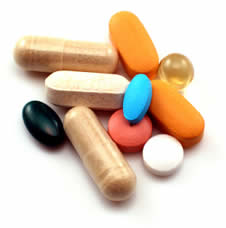License to Misbehave
 In Dietary Decoys, we saw that adding salads to a restaurant menu actually increased sales of french fries. Research in Taiwan exposes an equally odd fact: if we take a nutritional supplement like a multivitamin, we are MORE likely to exercise less and make unhealthy food choices.
In Dietary Decoys, we saw that adding salads to a restaurant menu actually increased sales of french fries. Research in Taiwan exposes an equally odd fact: if we take a nutritional supplement like a multivitamin, we are MORE likely to exercise less and make unhealthy food choices.
Behavioral Licensing
Researchers at the National Sun Yat-Sen University tested subjects by telling subjects they were receiving a vitamin pill or a placebo, and then monitoring their behavior in several situations. In all cases the pill was a placebo. The group who thought they had consumed a vitamin pill were more likely to show less interest in exercise, to show more interest in enjoyable but potentially unhealthy “hedonic” activities, and to choose a buffet meal vs. healthy organic fare. In another experiment, the “vitamin” group walked shorter distances than the placebo group.
The researchers attribute this to a “perceived invulnerability” effect based on questions answered by the subjects. The vitamin group felt less vulnerable to risks than the group who knew they were getting a placebo.
As Wray Herbert notes in The Vitamin Paradox, this odd behavioral quirk could be problematic:
Earlier studies have shown that people can get a sense of moral license from actual exercise, leading them to eat more — and less-healthy foods — afterward. But exercise has known health benefits, so it’s at least an honest tradeoff. Vitamins may or may not enhance health — the jury’s really still out on that — so it’s a cheap and easy way to acquire moral license without any certain benefit.
From a marketing standpoint, the counter-intuitive behavior is interesting. While one might think that vitamin-poppers would be a great marketing target for health-related products and services, that might not be the case. It’s still possible that in the general population, vitamin takers would indeed be more interested in, say, exercise gear. Or, perhaps not… maybe they would be great prospects for decadent cuisine or alcoholic beverages. As usual, testing is critical – basing a major campaign decision on logic (or gut feeling) alone is a recipe for disaster.
Extending behavioral licensing to other domains is interesting, too. How many of our “obvious” behavioral linkages might be incorrect?
